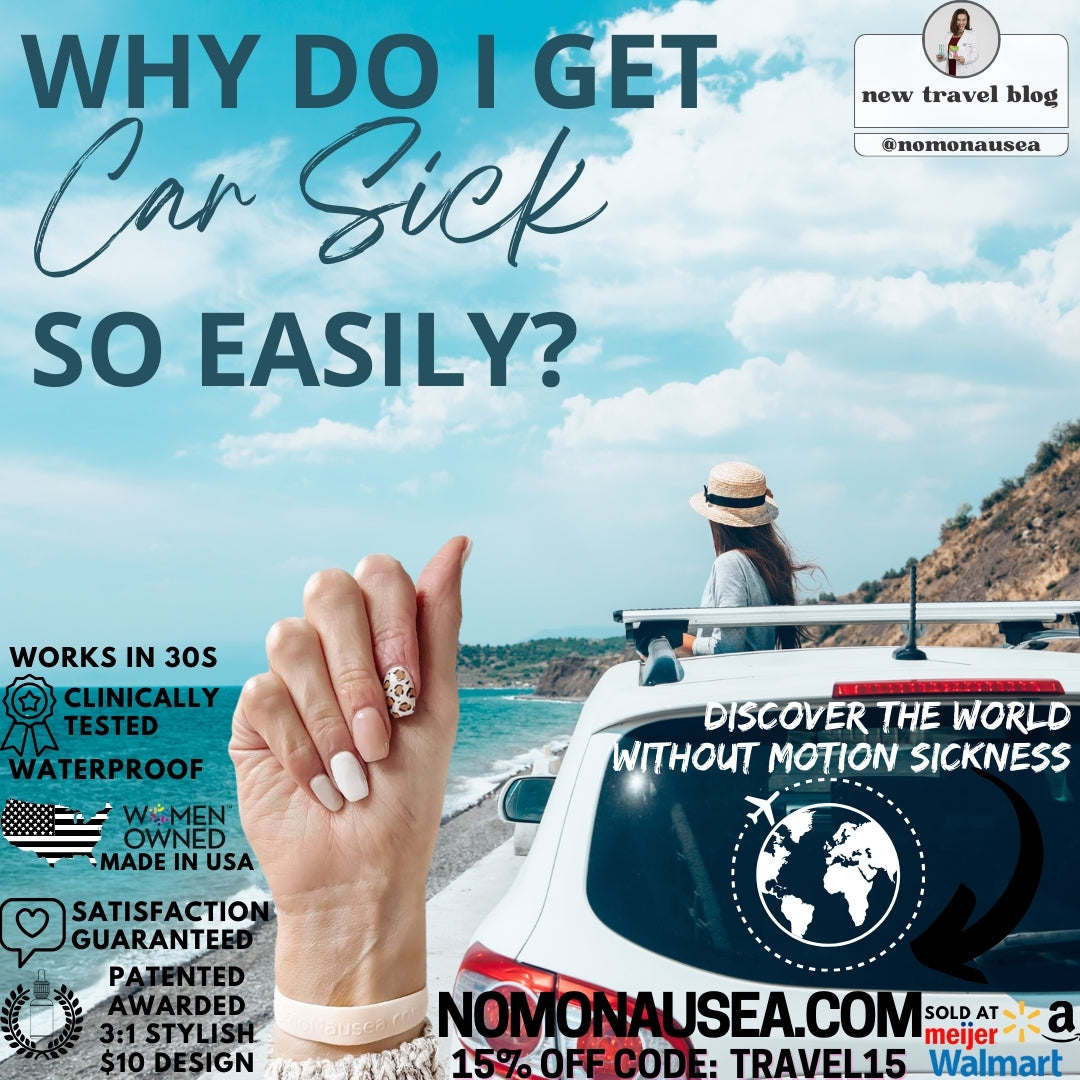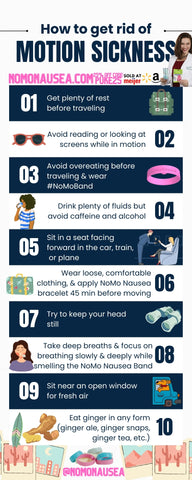
Why do I get car sick so easily?
The Mystery Behind Car Sickness:
How does motion sickness work?
Car sickness is caused by conflicting sensory signals that the brain receives.
It occurs when the inner ear, which helps with balance, detects motion while the eyes are focused on a stationary object, such as reading in a moving vehicle. This sensory mismatch confuses the brain and leads to nausea and dizziness.
Why do I get car sick so easily? Main Points to Explore:
- The Role of the Inner Ear: Understand how the inner ear contributes to car sickness. Learn more
- The Impact of Visual Signals: Explore the importance of visual cues in preventing motion sickness. Discover more
- Tips for Managing Car Sickness: Learn practical strategies to alleviate symptoms of car sickness. Read more
How to prevent motion sickness?
The Role of the Inner Ear:
The inner ear, also known as the vestibular system, plays a crucial role in maintaining balance and spatial orientation. When the inner ear detects motion, such as the movement of a vehicle, but the eyes perceive a stationary environment, it can trigger symptoms of car sickness.
The Impact of Visual Signals:
Visual signals are essential for coordinating motion and balance. Looking out at the horizon or focusing on a distant object can help reduce the sensation of motion sickness by providing a stable reference point for the brain. Avoiding activities like reading or watching videos in a moving vehicle can also help prevent car sickness.
Tips for Managing Car Sickness:
- Choose the Right Seat: Sit in the front seat or near a window to have a better view and minimize sensory conflicts. Shop NoMo Nausea


- Stay Hydrated: Drinking water and staying hydrated can help alleviate feelings of nausea.
- Consider NoMo Nausea: Try using a 3:1 essential oil infused pressure bracelet like NoMo Nausea to instantly stop nausea and vomiting from motion sickness. View product
Whether you're planning a road trip or simply commuting to work, understanding the factors that contribute to car sickness can help you better manage and prevent its symptoms. By taking proactive steps and incorporating practical tips into your routine, you can reduce the impact of motion sickness and enjoy your journey with ease.
Don't let car sickness hold you back. Try NoMo Nausea today and experience relief from nausea and vomiting in just 30 seconds! Buy now
The Impact of Stress on Car Sickness
Have you ever noticed that you tend to feel more car sick when you're stressed or anxious? Stress can actually exacerbate symptoms of motion sickness by increasing overall tension in your body.
When you're stressed, your muscles tighten, and your body becomes more sensitive to sensory signals, making you more susceptible to feeling nauseous or dizzy in a moving vehicle.
Practical Strategies to Reduce Stress-Induced Car Sickness
Managing stress levels can significantly improve your car sickness symptoms. Simple relaxation techniques, such as deep breathing exercises or listening to calming music, can help alleviate tension and create a more comfortable travel experience.
Additionally, practicing mindfulness and staying present in the moment can prevent your mind from fixating on potential feelings of nausea, reducing the likelihood of experiencing car sickness.
The Connection Between Diet and Car Sickness:
What foods prevent motion sickness?
Your diet can also play a role in how easily you get car sick. Consuming heavy or greasy meals before a car ride can increase feelings of nausea and discomfort, as your digestive system works harder to process the food while in motion.
Opting for lighter, easily digestible snacks, such as fruits or crackers, can help prevent stomach upset and reduce the risk of car sickness during your travels.
FAQs About Car Sickness
Q: Can medication help with car sickness?
A: Over-the-counter medications such as dimenhydrinate or meclizine can be effective in relieving symptoms of motion sickness. However, it's essential to consult with a healthcare professional before taking any medication, especially if you have underlying health conditions.
Q: Are there natural remedies for car sickness?
A: Yes, natural remedies like ginger or peppermint have been shown to alleviate nausea and dizziness associated with motion sickness. Using essential oil-infused pressure bracelets, like NoMo Nausea, can also provide fast relief without any side effects.
Q: Can changing my seating position help with car sickness?
A: Yes, choosing the right seat in a vehicle can make a difference in managing car sickness. Sitting in the front seat or near a window to have a better view of the surroundings can help reduce sensory conflicts and minimize feelings of nausea and dizziness.
Buy the Best Motion Sickness Bracelet
NoMo Nausea is a 3 and 1 essential oil infused pressure bracelet that is clinically proven to stop nausea or vomiting in seconds. Imagine a life with a comfortable pregnancy, and enjoyable day at sea, a family fun car trip, or just a hangover free weekend? That's what NoMo Nausea bracelet can do for you. So say no more to your nausea or upset stomach.
You can find NoMo Nausea on https://nomonausea.com and get 25% off with the coupon PUKE25.

Dr. in Naturopathy answers
1. How can stress and diet impact car sickness symptoms? 2. What role do visual cues play in preventing motion sickness? 3. Can seating position affect the likelihood of experiencing car sickness? 4. Are natural remedies effective in alleviating nausea and dizziness while traveling? 5. What medication options are available for managing car sickness? Discover the science behind car sickness and learn practical tips for managing symptoms in this blog post, then explore more health and wellness topics at https://nomonausea.com/blogs/healthandwellness/why-do-i-get-car-sick-so-easily.

